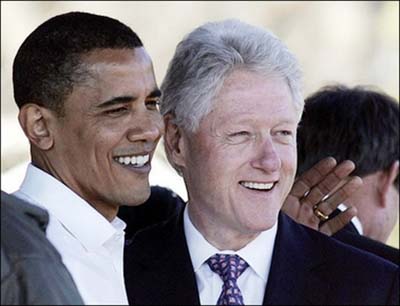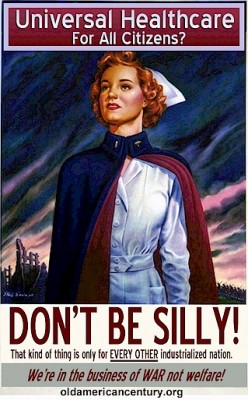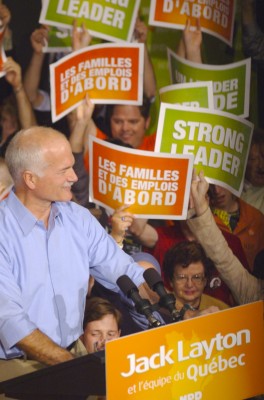Video:: Biden to Obama, “This is a big f*cking deal”
The signing of the healthcare bill last week was significant in more ways than one. I feel it galvanized the Democrats and I also feel it was critical for Obama to make the healthcare bill “personal” and get fellow Democrats to be rowing in the same direction. I think this was quite a challenge, as the liberal factions of the party are ideologically distinct from the more conservative Blue Dog Democrats.
In the wake of the signing, the Democrats got good news in the form of a public opinion poll reporting 49% saying the bill was a good thing, compared to 40% saying it was bad. There was also a spike in donations, with $1M pouring in last Tuesday without a direct ask.
There has been a backlash and alleged incidents of offices being vandalized. The Republicans needed to respond to thwart any momentum, but I’m not convinced their strategy is sound. Sarah Palin started a bit of controversy with her reload and targeting comments in a speech in Senate Majority Leader Harry Reid’s hometown of Searchlight, NV::
The media tried to whip Sarah Palin’s “targeting” and “reload” comments into pageview fodder, but I think the big issue for Republicans is a lack of a message that resonates with a country in the economic doldrums. John McCain claims that Palin’s words are just political rhetoric::
While this all makes for good drama, I’m not sure how effective this type of press coverage is in building support. I can’t help but think of the utter carnage of the 1994 midterm elections. Bill Clinton was weakened by a lack of support in Congress from his own party as a Washington outsider and…Newt Gingrich’s Contract with America. This C-SPAN footage is a bit dry, but it shows a systematic delineation of undermining public support of Democrats and was more successful than many anticipated. The Democrats would go on to lose 8 seats in the Senate and 54 in the House, earning a majority in both.
I think there was and perhaps still is an opportunity for the Republicans to pick up quite a few seats, but there needs to be rhetoric that moderates can sink their teeth into. Without a more substantial agenda resonating, I predict low turnout, as voters sit the midterms out.
Twitterversion:: Post healthcare, Dems get bump in polls & donations last wk. Rep. backlash ensues. Doubtful if 2010 will be another 1994 @Prof_K
Song:: Okkervil River-‘Our Life Is Not a Movie’




